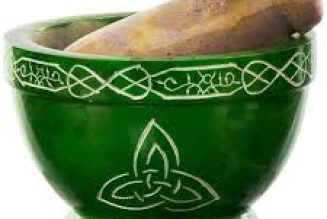Aloe (externally): Preliminary studies indicate that aloe vera gel may be useful in the treatment of psoriasis and other skin conditions that include an inflammatory component. In one study, it showed better anti-inflammatory effects than either placebo or 1% hydrocortisone cream, making it an excellent option to try. (Aloe can cause diarrhea and severe cramping when taken internally, and isn’t recommended for internal use.) Try this Aloe Dead Sea Salt Psoriasis Cream to use the power of aloe to cure psoriasis.
– Barberry: Barberry is related to oregon grape, contains many of the same active compounds, and can be used instead of Oregon grape if necessary.
– Cayenne: Capsaicin creams can be used topically to ease the itching and inflammation of psoriasis. (This will burn a bit, and may not be a good option for plaques that are raw, cracked, or bleeding.)
– Chickweed: Chickweed ointment is soothing and cooling, and reduces the itching and irritation of psoriasis. Chickweed tea or crushed chickweed can also be used as a poultice for the same effect, and in combination with cleavers, this effect is enhanced. In addition, chickweed tea can be used as a rinse on the scalp where an ointment wouldn’t be advised because of the difficulty of applying it through the hair; or added to the bath. Eating chickweed in a salad or drinking the tea will also provide zinc and Vitamin A, both of which are recommended for the treatment of psoriasis.
– Cleavers: Cleavers is used to detoxify the system and purify the blood, which makes it useful in cases where a sensitivity to toxins is making psoriasis worse.
– German Chamomile: Chamomile has a long history of use for soothing skin conditions such as psoriasis and eczema, and preliminary studies show that creams containing chamomile are, in fact, moderately effective in treating eczema. Like aloe, it also has an anti-inflammatory effect, and in test tube studies it has been shown to have anti-viral, antibacterial, and anti-fungal properties as well. (Chamomile is a member of the ragweed family, so if you have a ragweed allergy, you should be very careful using it internally.)
– Gotu Kola:In some studies, the active ingredient in gotu kola has been shown to increase blood supply, strengthen the skin, and boost antioxidants in wounds. Based on the findings of these studies, it has been used in creams to reduce scar formation and stretch marks, as well as to treat psoriasis and minor burns.
– Licorice:Used topically, licorice relieves the inflammation associated with psoriasis, and at least one person has claimed that using it internally cleared up their psoriasis completely. (Licorice has many possible side effects and interactions, and should be researched thoroughly before you use it internally.)
– Oregon Grape:An ointment containing Oregon grape has been shown in at least one study to reduce the itching, inflammation, and irritation of psoriasis.
– Qing Dai (Indigo Naturalis): A 2005 study of powdered indigo mixed in an ointment showed improvement in plaque psoriasis, and concluded that “Topical indigo naturalis ointment was a novel, safe, and effective therapy for plaque-type psoriasis”.(Yin-Ku Lin, MD; Chee-Jen Chang, PhD. Clinical Assessment of Patients With Recalcitrant Psoriasis in a Randomized, Observer-Blind, Vehicle-Controlled Trial Using Indigo Naturalis. (2005), Journal Watch Dermatology 2008;2008:3-3) Powdered indigo can be found at shops that carry Chinese herbs, and ready-made ointments are also available.
– Red Clover: Traditionally, red clover has been used in ointments to treat psoriasis, and in teas to cleanse and purify the blood.
– Safflower: A tea made from safflower petals can discourage cell proliferation (cell growth) and encourage cell death. Since psoriasis plaques are caused by an immensely speeded up life cycle of the skin cells, discouraging cell growth may reduce the production of new plaques.
– Turmeric: There are many reports from those taking turmeric for other reasons that after a few months their psoriasis either went away completely, or improved to the point that all that remained were a few dry, flaky patches that were almost unnoticeable. It is thought that the anti-inflammatory effect of the turmeric calms the immune system and reduces frequency and duration of plaques, as well as their severity.








